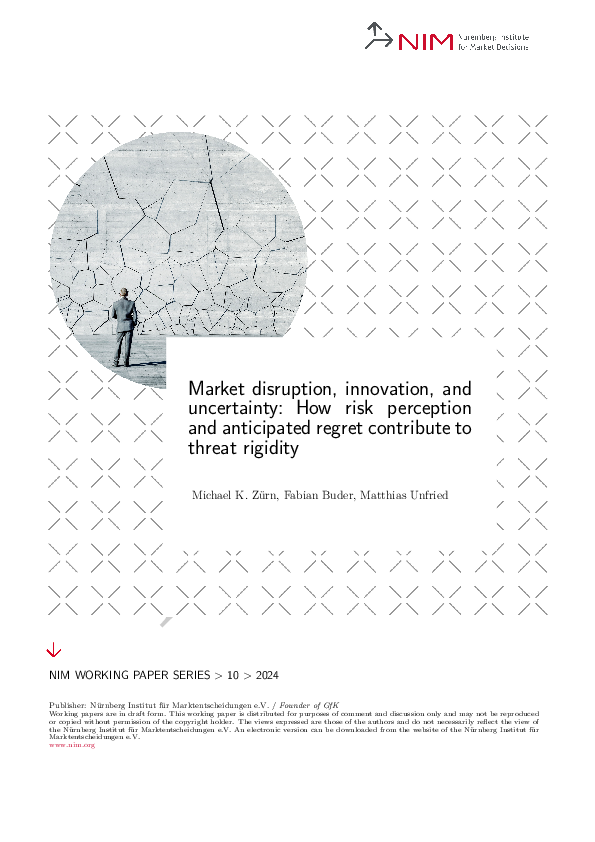Publikationen
 Download
Download
2024
Dr. Fabian Buder,
Dr. Matthias Unfried
Market disruption, innovation, and uncertainty
In the face of market disruptions, decision makers often need to innovate their products or even their entire business model to remain competitive. However, decision makers are too often unwilling to take the risk of innovation when facing a threat to their businesses. While the necessity to innovate must always be evaluated individually, systematic biases such as threat rigidity inevitably prevent some vital innovations from being implemented. We take a psychological perspective on threat rigidity and test how market disruptions affect decision makers’ risk perception and anticipated regret in innovation decisions. Behavioral decision theories suggest that decision makers seek risk under threat which initially contradicts the observation of threat rigidity. Our results indicate that biased risk perception contributes to threat rigidity because under threat, innovation appears relatively less risky. Crucially, this shift in risk perception interferes with the risk-seeking that is commonly observed for expected losses. Furthermore, threats amplify the anticipated regret associated with innovation, which contributes to threat rigidity because regret avoidance prevents decision makers from actively deviating from the status quo. We discuss the managerial implications of our findings and outline avenues for future research.
Diese Publikation ist nur in englischer Sprache verfügbar.
Autorinnen und Autoren
- Dr. Michael K. Zürn, Senior Researcher, NIM, michael.zuern@nim.org
- Dr. Fabian Buder, Head of Future & Trends Research, NIM, fabian.buder@nim.org
- Dr. Matthias Unfried, Head of Behavioral Science, NIM, matthias.unfried@nim.org
Kontakt
